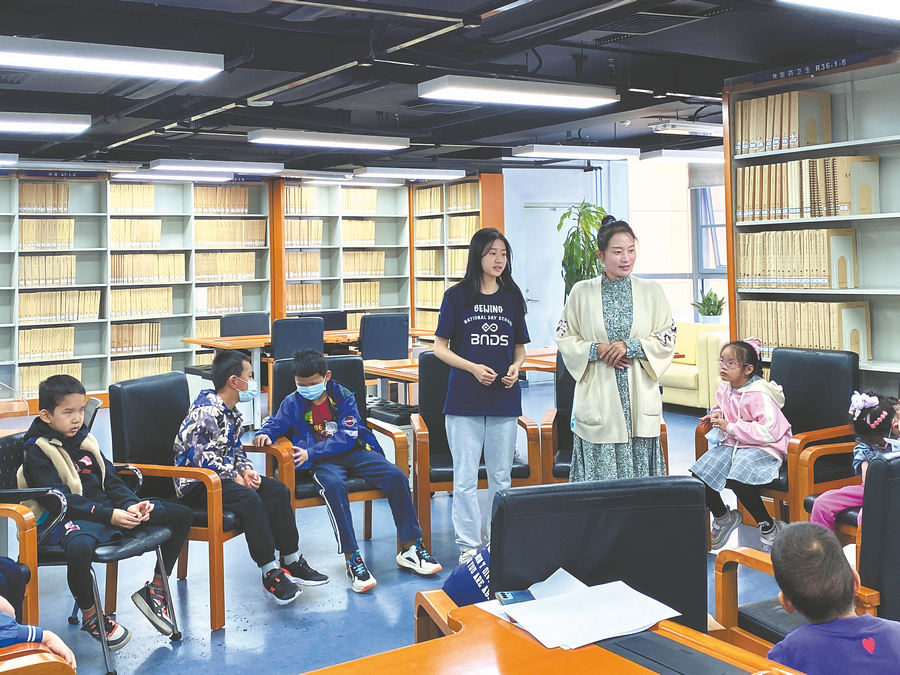

This language of humanity can help give warmth to the visually impaired and help shape their characters.
The clock struck 10. Teacher Luo Lili called upon her students to return, and like in any other class they returned to their seats, one by one, or in batches of two or three, soon forming a ring behind Luo who sat in front of a piano. After counting the heads to ensure they had all returned, Luo ran her fingers on the piano keys, pausing now and then to explain to the kids about rhythm and the tunes she was playing. They nodded from time to time.
Fulfilling for the teachers
Every weekend, the China Braille Library organizes a music training class for children who are visually impaired. "Children with visual impairment go to regular schools like everyone else, but after-class activities are rarely tailor-made for them," Luo said. "That's why we hold this extracurricular activity for them here."
Weekend Interest Groups For Visually Impaired Children has been holding classes since 2013, constantly increasing the number of children they can take in and the range of topics. Initially, they taught English recitation and Lego constructions. They later expanded the courses to include news and pop science.
The organization has grown, setting up branches outside Beijing. Being unable to hold gatherings during the three years of the COVID-19 pandemic, they introduced online courses for visually impaired children to learn via computers and smartphones.
Organizing the course gives her great satisfaction, says Luo. "I get fulfillment in the process," she said. "By sharing knowledge with the children I enhance myself."
Pan Jiang, a teacher at the institute who is visually impaired himself, says that for the visually impaired, the biggest difficulty lies in identifying which key on the Braille keyboard plays which note.
"That's why I feel a sense of achievement when they learn it well," he said. "Their progress is important not only for them but also for me."